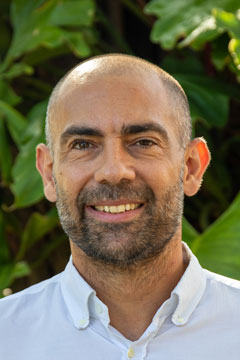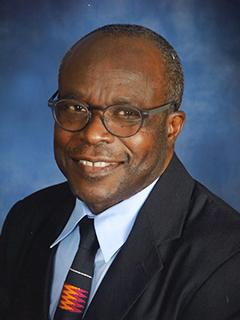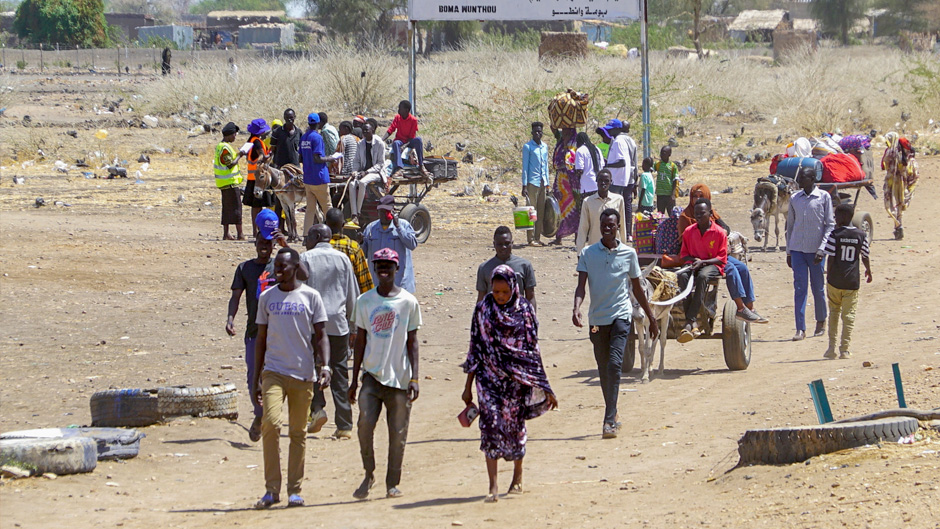Bombings and street clashes erupted in the Sudanese capital of Khartoum in mid-April between the Sudanese Armed Forces (SAF) and the Rapid Support Force (RSF), a state-sponsored militia. The ongoing violence in the capital and other areas has resulted with the deaths of more than 700 people, at least 5,000 injured, and it has forced the displacement of hundreds of thousands of Sudanese.
The same two forces who allied in 2019 with Sudanese civilian groups to oust a despotic leader now have splintered, each seeking its own power and gain. The pattern is predictable for armed groups around the world, according to Costantino Pischedda, an associate professor of political science at the University of Miami College of Arts and Sciences who has researched ethnic politics, civilian victimization, and insurgency conflict for decades.
“Lust for power, greed, and fear are all at play here, as both sides want more power and more money,” said Pischedda. “The leaders of both forces seem to be primarily interested in being the top dog—they have no identifiable political agenda. Fear matters too, as both sides are afraid that letting their guard down will enable the other to land a decisive blow.”

In his book, “Conflict Among Rebels: Why Insurgent Groups Fight Each Other,” Pischedda finds that rebels sharing an ethnic identity are especially prone to violent conflict, as they see each other as both potential existential threats and enticing opportunities for expansion.
The SAF and RSF do not belong to the same chain of military command and since 2021 held joint military power after deposing authoritarian President Omar al-Bashir in a coup d’état. Pressured by the international community to relinquish power to civilian leadership, the two forces engaged in negotiations to integrate into one force, but in April abruptly broke off talks, Pischedda explained.
There have been conflicting reports, he said, but it appears the RSF moved first to reject the proposed unification by attempting the equivalent of a coup.
“For reasons that are relatively intuitive, the leadership of RSF didn’t want to be absorbed and lose their influence as one of two powers in the country,” he said. “So, this seems like a pretty straightforward power struggle where both sides prefer to be on top, so as to have more influence, more opportunities for financial gain, and complete confidence in their physical survival.”
Edmund Abaka, director of graduate studies in the College of Arts and Sciences Department of History, highlighted that the military has long exercised a preponderant role in Sudan’s politics.
“There have been periods of civilian rule in the Sudan, but the military almost always steps in as ‘guarantors of sovereignty,’” pointed out Abaka, a specialist in African history. “Then it takes protests, mobilizations, and a huge effort on the part of the civilian population to get them out.”

He said this was the case with the regime of al-Bashir, who came to power in 1989 and remained there for nearly 30 years until he was deposed. During his time in power, he created the militia to squelch rebellions and wage proxy wars. That same militia evolved to become the RSF.
“So, the military has always been involved in this kind of way,” Abaka said. “When I look at the military in Africa, they give the sense that they only answer to God. The first thing they do is suspend the constitution and rule by decree,” he continued.
“That’s the issue. Because once they are in charge, they see the benefits of controlling everything so they can utilize the country’s resources to leverage relationships with groups,” Abaka added. The military elite manipulate the situation by targeting people they can bring into the regime to maintain their power.
According to Abaka, only when civilian outrage grows so strong that it creates pressure does the military give in, albeit kicking and screaming, to turn over government and power to civilians.
He noted that, while external pressure always has been important in these situations, many suggest that the United States didn’t exert enough pressure in the form of sanctions on the military to abdicate power after the coup.
“They appeased the armed forces and the militia in hopes that they had become part of the transition, but it turned out to be a blunder—they underestimated the ability of these guys,” Abaka said.
A U.S. Senate Foreign Relations Committee hearing on May 10 examined the United States diplomatic and security role in depth. The meeting summarized the U.S. role preceding the failed negotiations, the lack of involvement, how U.S. personnel were evacuated, and what is being done now to try and pressure the military back to the negotiating table and empower civilian groups.
Abaka noted that the turmoil and instability in the region—in the Middle East, Yemen, Ethiopia just emerging from a war—contribute to a dire outlook for any ceasefire and negotiated settlement.
“The short-term prospects are dim, but that doesn’t mean we should give in,” he said. “Britain, the U.S., Saudi Arabia, United Arab Emirates, Egypt, and the African Union all should be actively engaged and pushing for a short-term solution—a ceasefire to provide some security and safety for the civilian population trapped in the middle of this power struggle.”
The Sudanese people fleeing the violence are compounding the problem, he said.
“That’s the most problematic demonstration of all these struggles—the people caught in the middle that are displaced that have to find temporary shelter, have to rebuild their lives afterwards, the women who want some sort of economic activity but can’t because of the migrations. They are the ones who suffer the most,” Abaka said.
The civilian population that has in the past risen to eventually force the military to abdicate will try again in the future when they cannot take anymore, he added. “Unfortunately, it’s the leaders who get to sit at the table and talk, which is part of the problem because they are the originators of the problem,” Abaka said.
Pischedda suggested that external actors—Egypt supporting the SAF and Libyan strongman Khalifa Haftar and Russia’s Wagner group backing the RSF with weapons—could worsen and prolong the conflict, but recognized that, for any possible resolution, countries with any leverage will have to use it.
“In the early 2000s, U.S. pressure on the Sudanese government was crucial for reaching an agreement between two sides of the civil war ravaging the country then,” he said. “But it doesn’t seem that the U.S. has a silver bullet at its disposal now.”
Pischedda has a difficult time envisioning a peaceful solution, at least in the short-term.
“It has been suggested that the West needs a different approach, one that emphasizes more the role of civilian opposition forces, which were the ones who deserve most of the credit for overthrowing the former regime,” he said. “But I don’t see how you’re going to deal with these ambitious, greedy men with guns in the country—they’re not going to sign themselves out of power.”

